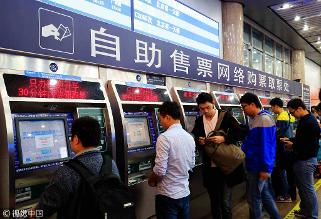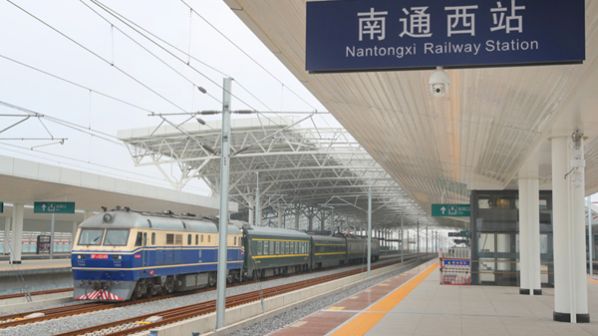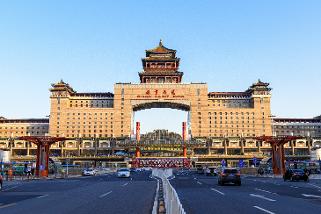Trains

Older train stations are centrally located in major cities, but in minor cities they can be some distance from the actual city.
High speed train stations, all newly built, gleaming and impressive in scale and style, tend to be on the outskirts of a city and are usually connected to local underground transport networks. Getting across China is easier than ever and still quite affordable when you consider the distances.
In major cities, Chinese train stations are usually, but not always, denoted by the compass, for instance, in the Southern mega-city Guangzhou, you have Guangzhou East, Guangzhou West, Guangzhou North, Guangzhou Railway Station and Guangzhou Qingsheng Station. Guangzhou South is the main high speed station whereas Guangzhou Railway Station will have older sleeper trains. So, do check your ticket and head to the right station!
Generally, the ‘main’ station has old clunkers, sleeper trains and so on, maybe based near the city centre with a high speed station on the outskirts. In nearly all stations you’ll find ticket touts, which of course you should not buy from.
Most stations have electronic information boards and some larger stations have a foreigner’s desk (which oddly enough is often staffed by non-English speaking workers). If you buy on the spot, tickets permitting (always buy in advance!) the queues can be long, very long and any precious ‘sleeper’ tickets can get snapped up very quickly indeed during holidays! As mentioned, online buying is the norm now.
Check out the official website of 12306.cn (yes, it looks suspicious but please trust us, it’s the official railway ticket app and website). You may need help registering to buy a ticket on this. There isn’t a paper ticket anymore, you can show a screenshot of your train and, of course, your passport. Wechat also have this service.
Train station checks are pretty strict nowadays with all luggage scanned and passports checked on entry. Allow plenty of time for that (platform gates close 5mins before scheduled departure time).
Note: watch your zips and pockets at major stations if you need to queue up, although pickpocketing has seriously reduced in recent years (well done China on this).
If you get a paper ticket then it uses Western numbers and characters, including train number and station names. Everyone has an assigned seat and carriage unless you have a standing-only ticket. The departures area is often through a different part of the station, bags through a scanner, and to the correct gate according to your train number.
Warning: gates for all trains close around five minutes prior to the train’s departure. At this point you may be faced with an impatient attendant in a polished uniform using, quite unnecessarily, a loudspeaker, whose job it is the hurry the madding hoards along. The scrum that ensues is extremely annoying.
Don’t expect much of a queue. Try to board the train at the carriage your ticket is for. For example, if your sleeper (bed) is carriage 15, then you must get to carriage 15 before you get on which could be some walk down the platform. Then on older sleeper trains, once you’ve found your spot for the night, the carriage attendant (each carriage has an attendant) might swap your paper ticket for a coloured peg which you hand back prior to disembarking. In each carriage you’ll find hot water (free), toilets and a sink. The same applies to high speed trains.
Life on the old sleeper trains can be great and many friends can be made with those around you. However, a real experience (albeit deadening on longer journeys) can be had if you get a seat-only ticket. You may drink, smoke (at the end of each carriage on old trains only) eat and even sing together if you’re open and friendly enough. Give it a try if you're the adventurous type.
On old trains, the carriages will be swamped with people sleeping on the floor, in toilet units, on sinks, on top of one another and so on. Shortly after departure, a small desk in one of the seating carriages may open and sell a few upgrades to sleepers (this can turn into a real scrum).
But high speed trains are now the norm. They are like airline seats, except comfier, wider, with a pull-down table and most modern trains have USB charging ports. At busy times of the year you may have to stand for many hours as all seat tickets have been sold.
The advice is: book your tickets as early as possible – sleeper tickets on very long trips are strongly recommended! Be warned that usually, non-terminus stations have relatively few tickets available.
So, we advise getting a far more relaxing high speed train. Just make sure to book well in advance! Mostly, your experience of a busy Chinese train will be a great and fascinating one!
(See festivals about avoiding trains during the busiest times of the year).



